Company expects to produce 10,000 tonnes of insects annually and an equal amount of excrement for use as fertilizer
All is considered quiet when only crickets can be heard, but billions of crickets will be raising their voices when a production facility in London, Ont., starts production early next year. The Aspire Food Group has started construction on a $72 million plant that will produce protein powder for pet food, human food, soil and […] Read more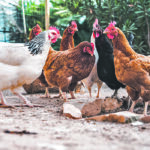
Interest grows in raising small urban poultry flocks
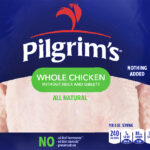
Price fixing case settled
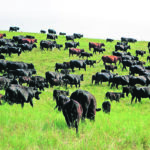
Supply-side worries send sales sky high
Food shortages at the outset of the pandemic sent consumers scrambling to fill their freezers and larders with local food
Consumers facing the growing uncertainty of the COVID-19 crisis are seeking the security that comes from having a freezer full of locally-produced food, said an Alberta rancher. “Our sales have been just sky high,” said Ben Campbell, who sells directly to local customers from his Grazed Right business on the Tullichewan Ranch near Black Diamond, […] Read more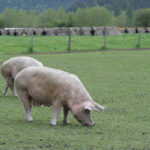
Waiting for consumers to pay for changes called bad idea
Linking consumer food demands to compensation risks putting industry sustainability on shoulders of uninformed public
In surveys and research, consumers often indicate they want dairy cows to have pasture access, pigs to be in loose housing and chickens to have freedom of movement. Whether consumers are willing to pay more for food produced in ways they say they want is another matter. On farmers’ part, they often say that if […] Read moreRural nickname tradition met its match in the early ’70s
Giving neighbours a second name was commonplace back in the day, but what to do when the ‘flower people’ arrived?
Back home on the farm, there were no such things as flocks and herds and litters. To me they were all individual creatures, and I spent many solemn hours as a precocious kid mulling over names for the chickens the pigs, the pups and the kittens. So maybe to a Rhode Island Red it made […] Read more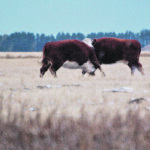
Cattle temperament genes linked to autism
Advocacy groups have criticized the study, but researchers hope findings will shed new light on genetic aspects of autism
Australian researchers have discovered a strong association between the genes influencing cattle temperament and autism in humans. Dr. Roy Costilla, postdoctoral research fellow at the University of Queensland’s Centre for Animal Science, said researchers tested the association of cattle temperament with temperament-like traits in humans, including four behavioural and psychiatric disorders: neuroticism, schizophrenia, developmental delay […] Read more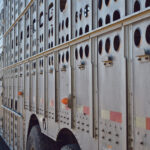
Livestock carriers deal with new certification
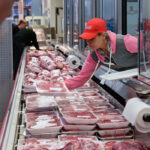
Food unlikely to spread COVID: CFIA
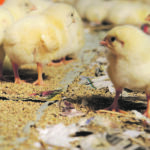
Slow-growing chickens more mobile
New research study suggests that the reduced mobility found in fast-growing broilers may be an animal welfare issue
Fast growth chickens, despite their name, aren’t particularly fast. They are inactive and spend a great deal of time sitting, says a University of Guelph report. In comparison, slow-growth chickens are more active and may have better animal welfare. Stephanie Torrey and Tina Widowski from the U of Guelph animal bioscience department studied the behaviour […] Read more





